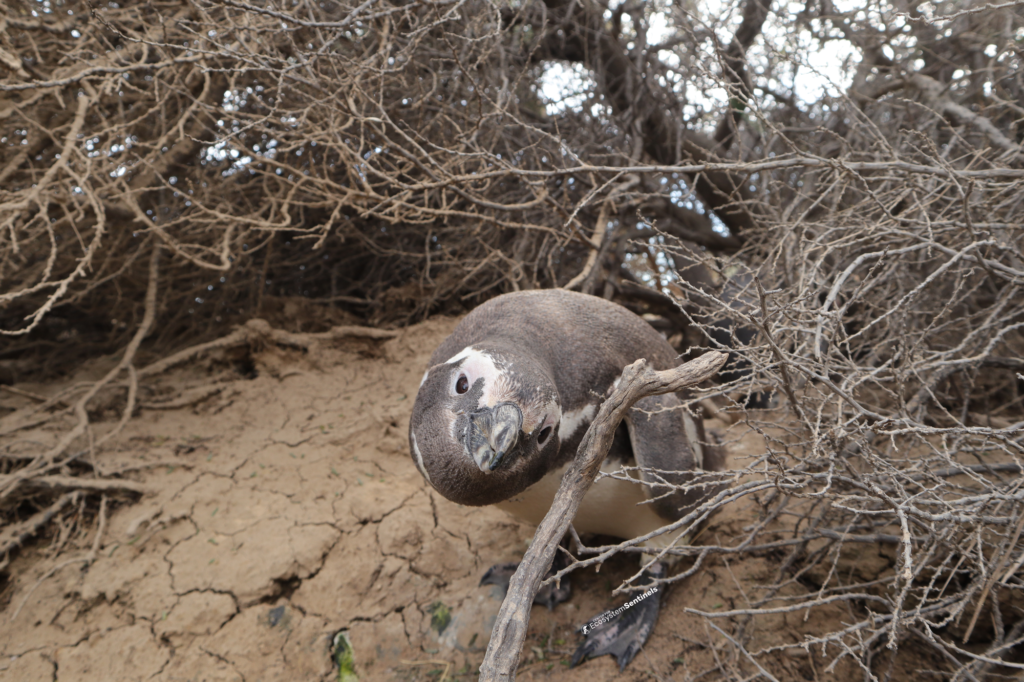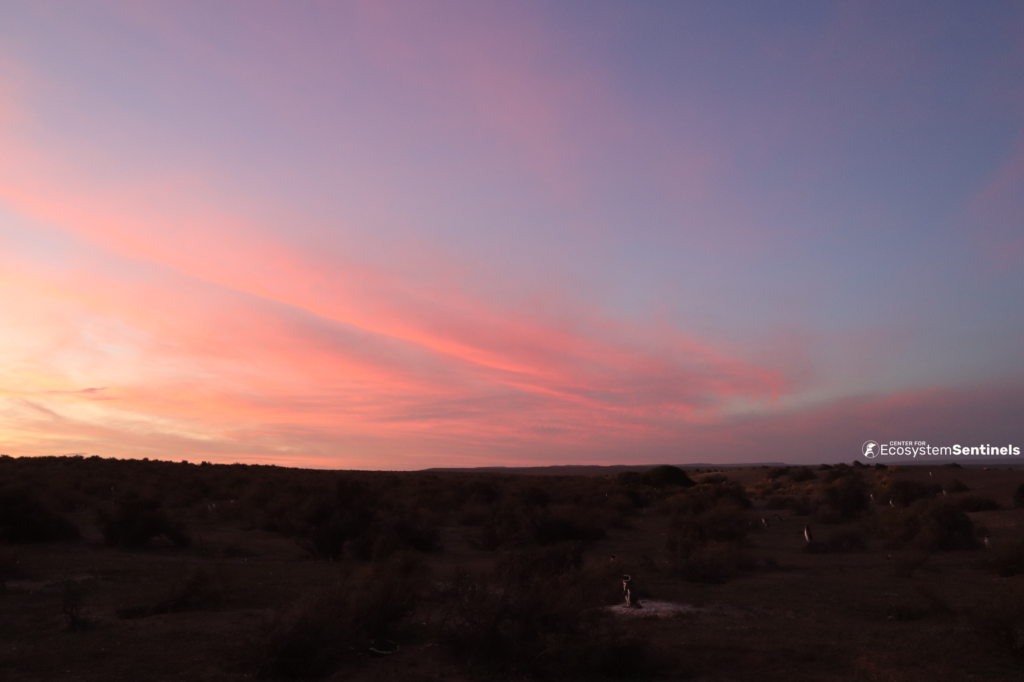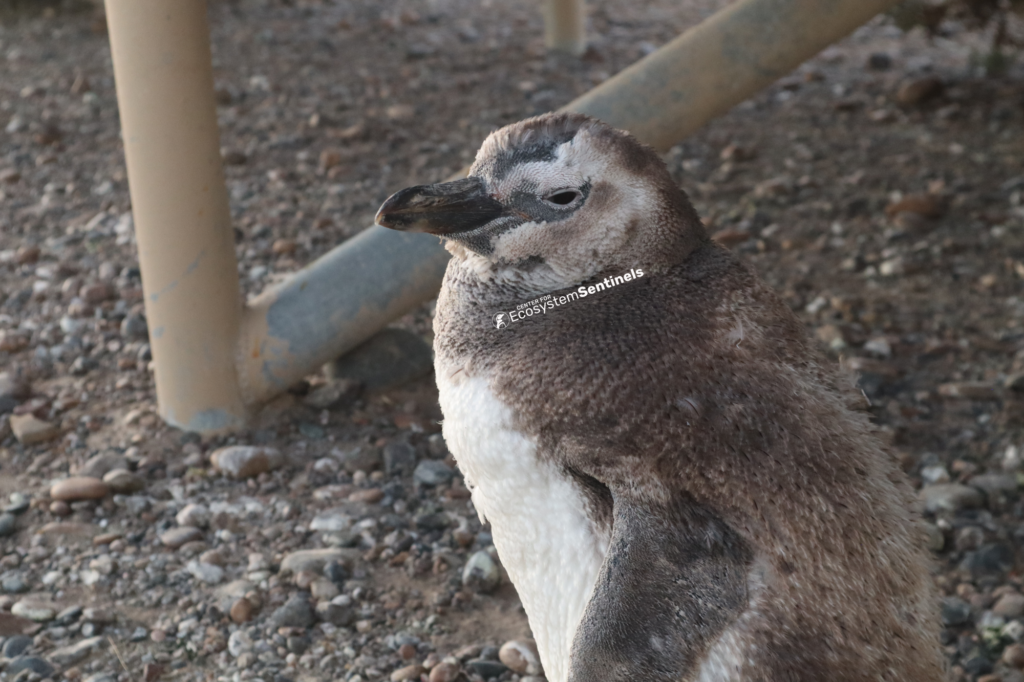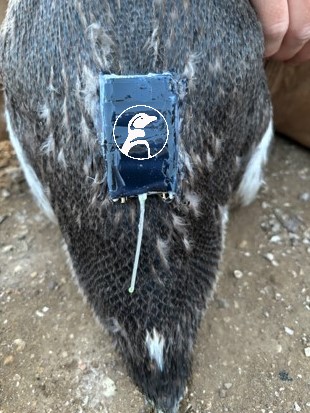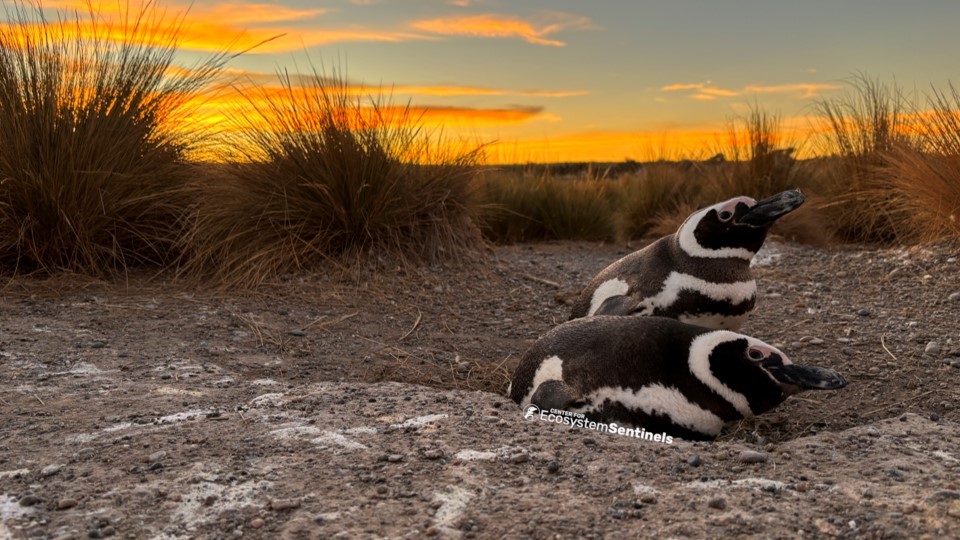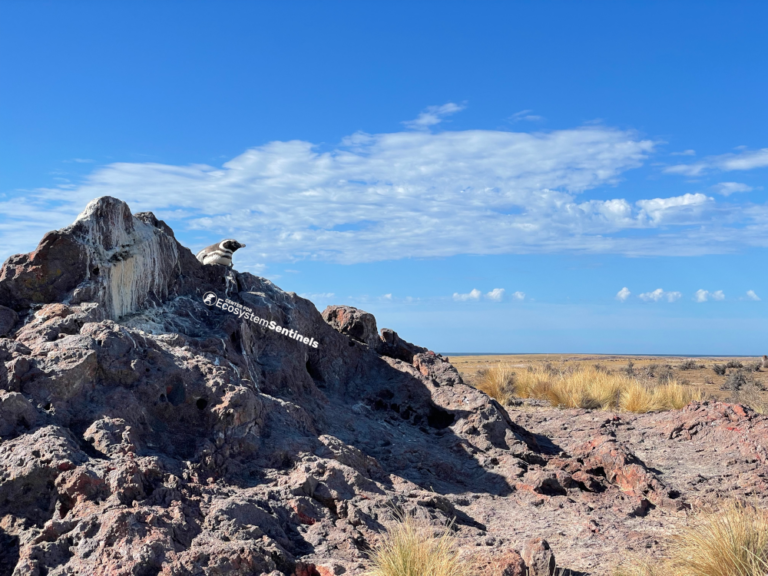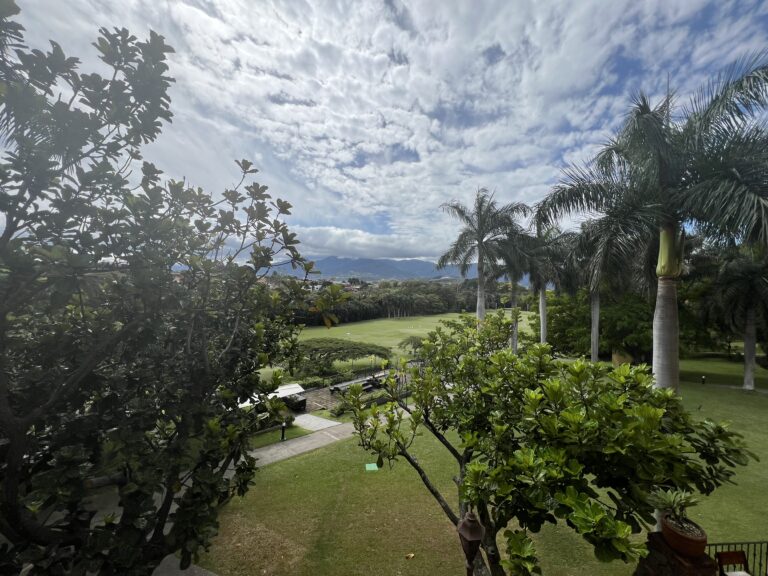We continued our Punta Tombo field season this winter with graduate student Erik Johansson, former undergrad lab member Chloe Rabinowitz, and program coordinator Kalyna Durbak staying on site from January 12 through February 21. Our goal for this trip was to attach GTA* and GPS tags on adult penguins who were actively feeding chicks in order to log their foraging trips. Since the tags did not actively transmit data, they had to be retrieved after about two weeks of use.
The tags were deployed 41 times throughout the field work trip; 31 GTA deployments and 10 GPS deployments. Center researchers were especially thrilled about the GTA tags, as they provided acceleration records that we haven’t collected for several years. Over the next year our researchers will sift through 51,347 locations, 30 million pressure records, and about 740 million acceleration records.
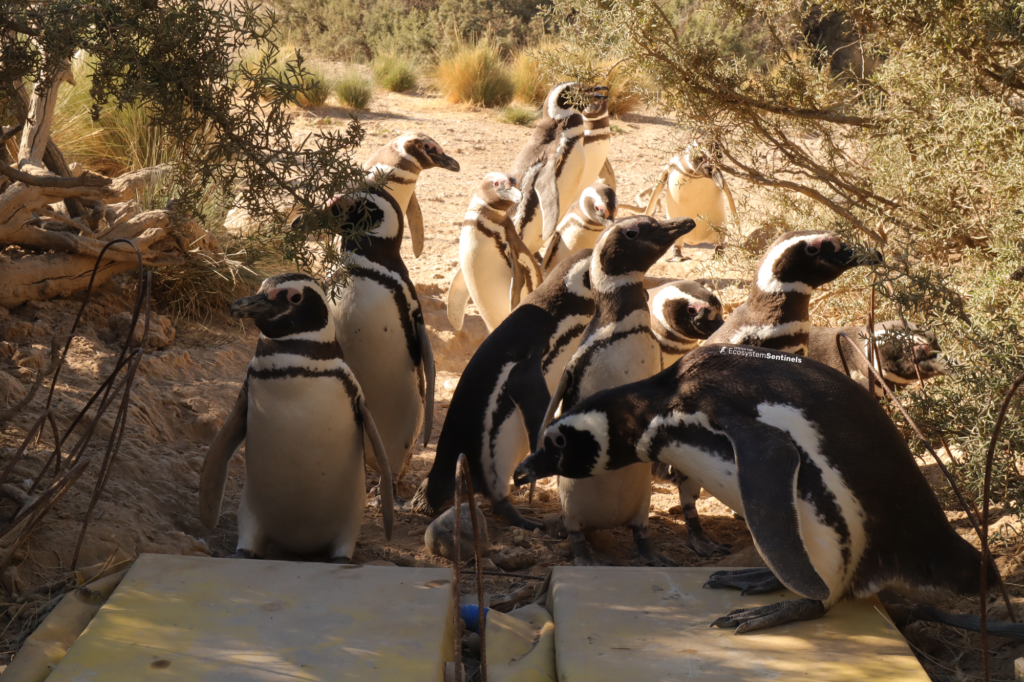
- checking hundreds of nests marked in the fall for signs of chicks,
- surveying beaches and historical counting spots for penguins and cormorants,
- weighing random fledges during early, peak, and late fledgling season,
- completing two stake surveys: one at Cabo Dos Bahías and at Punta Tombo,
- deploying the weighbridges to passively weigh thousands of penguins
This research is all made possible by the generous support we receive from individuals and private foundations. To our donors- thank you for allowing us to continue our work!
*GTA = GPS locations, depth and timing of dives, and measurements of 3-dimensional penguin motion that indicate prey capture
